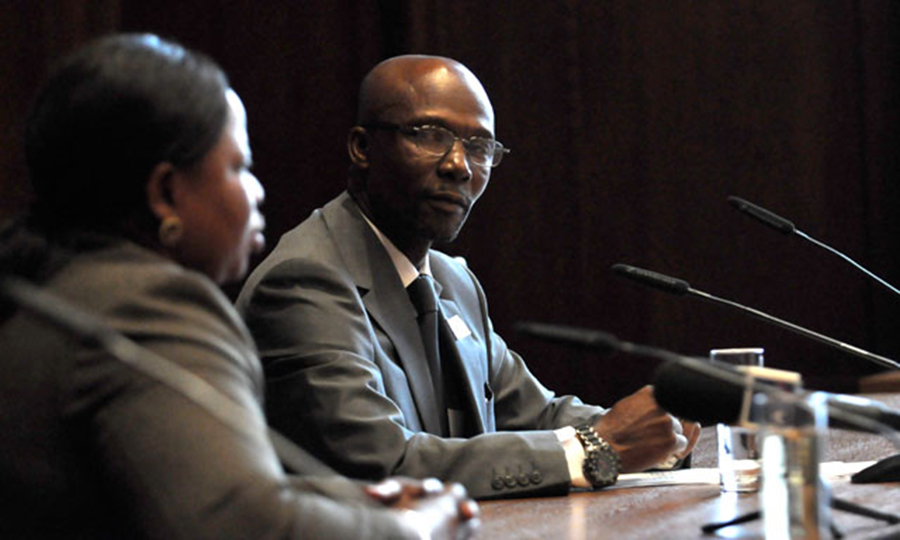Conference
4-5 October 2012
Nuremberg, Germany
Media workshop
2-3 and 6-7 October 2012
Courtroom 600, Palace of Justice,
Nuremberg, Germany
With the financial support of the German Federal Foreign Office.
Conference
To mark the tenth anniversary of the entry into force of the Rome Statute of the International Criminal Court, the new international criminal justice institution in Nuremberg (currently in its founding stage), in cooperation with the Wayamo Communication Foundation and with the financial support of the German Federal Foreign Office, hosted the conference “Through the Lens of Nuremberg: The International Criminal Court at its Tenth Anniversary”.
The International Criminal Court (ICC) was established to help end impunity for the perpetrators of the most serious crimes of international concern, namely genocide, crimes against humanity and war crimes. Upon the ratification of 30 countries at the earliest in 2017, the ICC will also have jurisdiction over the crime of aggression
The most important predecessor of international courts and tribunals including the ICC as the first permanent institution is the Nuremberg Tribunal which laid the groundwork for modern international criminal law. The objective of the conference was to examine to what extent the legacy of Nuremberg has been implemented in the work of the ICC and other international tribunals.
The conference marks the progress made in the development of international criminal law in the six decades since the Nuremberg trials, especially since 1993, when the idea of an international criminal justice system gained new momentum through the establishment of the International Criminal Tribunal for the former Yugoslavia. Looking through the lens of the Nuremberg legacy, the conference celebrated the advancement of international criminal law, the achievements of the ICC during its first decade, and assessed the contemporary challenges the Court is facing.
International Media Workshop
Topics addressed
- How successful was the implementation of the Nuremberg principles in the development of international criminal law; and how can these principles’ claim for universality be furthered?
- From the “crime against peace” in the Nuremberg trials to the “crime of aggression” in Kampala.
- TThe Nuremberg trials established that even a head of state could be held criminally responsible and punished for international crimes. Can international tribunals strip heads of state off their immunity (Slobodan Milošević, Charles Taylor, Omar al-Bashir and Muammar Gaddafi)? How should the Rome Statute deal with the immunity rights of rulers of non-States Parties?
- Complementarity – Challenges in the establishment of national criminal justice systems for international crimes. To what extent has the complementarity principle been applied in the situations of Uganda, Kenya and Libya?
- Securing peace by means of law: The crucial nexus between justice, reconciliation and sustainable peace.
- Challenges and perspectives:
-How to deal with contradicting perceptions of the ICC in African and Arab countries?
-How to address instances of non-cooperation by States Parties?
-What are the acceptance problems of the ICC?


